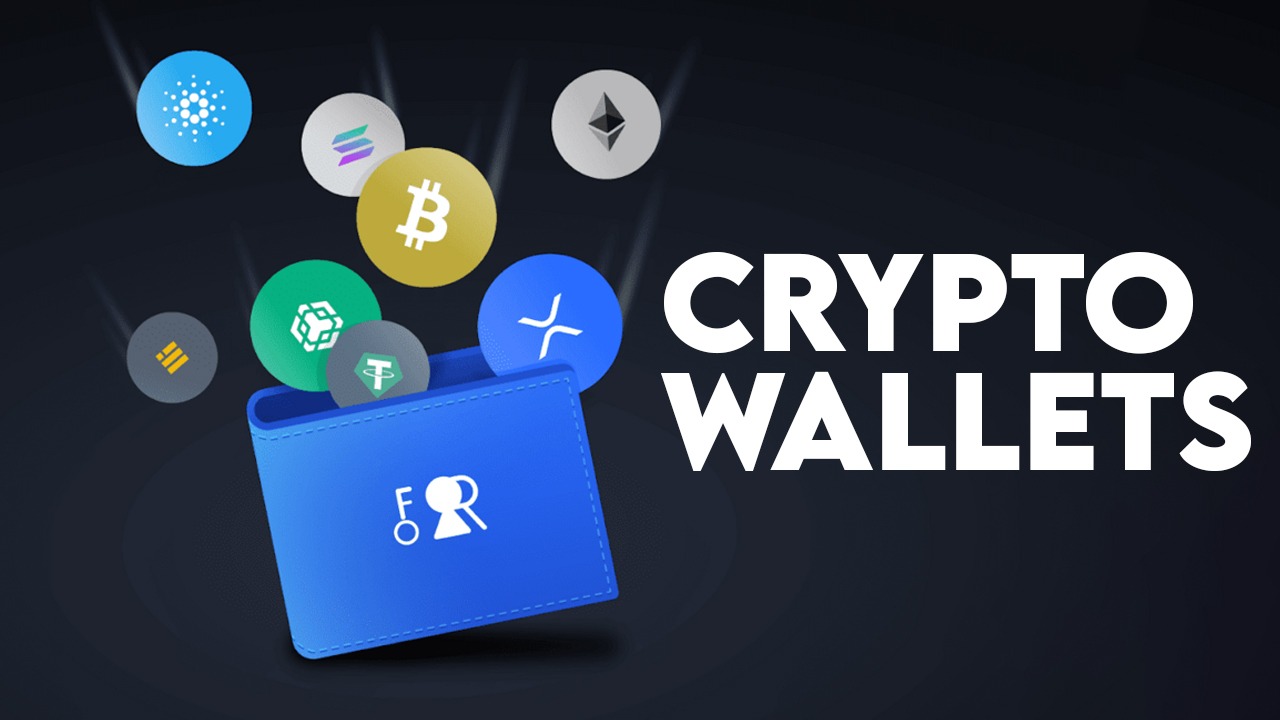• Introduction:
Define what a cryptocurrency wallet is:
A cryptocurrency wallet is a digital tool that allows users to securely store, manage, and interact with their cryptocurrencies. It consists of two essential components: a public address, which functions as the location where others can send cryptocurrencies to the wallet, and a private key, which is a secret code known only to the wallet owner and is crucial for accessing and managing the stored funds. Cryptocurrency wallets can be hardware devices, software applications, or paper documents, each offering varying levels of security and accessibility.
Explain the basic function of wallets in the crypto space:
Cryptocurrency wallets store private keys, enabling users to send, receive, and manage their digital assets. They also offer security features, display transaction history, and serve as interfaces for interacting with blockchain networks.
• Crypto wallets come in various types, catering to different preferences and security needs:
1. Hardware Wallets:
Physical devices that store cryptocurrency offline, providing enhanced security. Examples include Ledger and Trezor.

2. Software Wallets:
- Desktop Wallets: Installed on a computer, offering control and security. Examples include Electrum and Exodus.
- Mobile Wallets: Apps for smartphones, convenient for on-the-go transactions. Examples include Trust Wallet and Coinbase Wallet.
- Online Wallets: Web-based wallets accessible from any device. Examples include MyEtherWallet and Blockchain.info.
3. Paper Wallets:
Physical documents containing public and private keys, often used for long-term storage.
4. Multi-Signature Wallets:
Require multiple private keys to authorize a transaction, enhancing security.
5. Custodial Wallets:
Provided by third-party services, where they hold and manage your private keys. Exchanges often offer custodial wallets.
Each type has its advantages and considerations, so users should choose based on their specific needs and preferences.
• Cryptocurrency wallets are popular for several reasons:

1. Decentralization:
Cryptocurrencies operate on decentralized networks, and wallets enable users to have control over their funds without reliance on traditional financial institutions.
2. Security:
The cryptographic principles behind wallets provide a secure way to store and manage digital assets. Features like private keys and encryption enhance the security of transactions.
3. Ownership and Control:
With crypto wallets, users have full ownership and control of their funds. This contrasts with traditional banking systems where a third party manages your assets.
4. Global Accessibility:
Cryptocurrency wallets allow users to access their funds from anywhere with an internet connection, promoting global financial inclusivity.
5. Financial Privacy:
Cryptocurrency transactions can offer a degree of privacy, as users can make transactions without revealing personal information. This appeals to those who value financial privacy.
6. Innovative Technology:
The underlying blockchain technology and cryptographic principles used in wallets represent cutting-edge innovations, attracting tech enthusiasts and early adopters.
7. Potential for Profit:
Many individuals are drawn to cryptocurrencies as an investment opportunity. Wallets play a crucial role in storing and managing these investment assets.
8. Diversification of Assets:
Cryptocurrency wallets allow users to diversify their portfolios by holding various cryptocurrencies, contributing to a broader investment strategy.
9. Ease of Transactions:
Cryptocurrency transactions can be faster and cheaper compared to traditional banking methods, especially for cross-border transfers.
10. Growing Ecosystem:
The continuously expanding ecosystem of cryptocurrencies and decentralized applications increases the utility and appeal of wallets.
11. Community and Advocacy:
Strong and passionate cryptocurrency communities actively promote the use of wallets, contributing to their popularity through word of mouth and online forums.
While crypto wallets offer numerous benefits, users should also be aware of security best practices to safeguard their assets in this dynamic and evolving space.

•Conclusion:
Cryptocurrency wallets serve as indispensable tools in the decentralized world of digital assets. They provide users with ownership, control, and security over their funds, appealing to those seeking financial autonomy. The global accessibility, potential for profit, and innovative technology associated with crypto wallets contribute to their widespread popularity. However, users must exercise caution, prioritize security measures, and choose wallets that align with their preferences. As the cryptocurrency landscape evolves, wallets continue to play a pivotal role in facilitating secure transactions and enabling individuals to engage with the diverse and dynamic ecosystem of digital currencies.



Comments